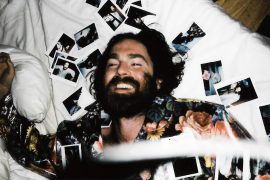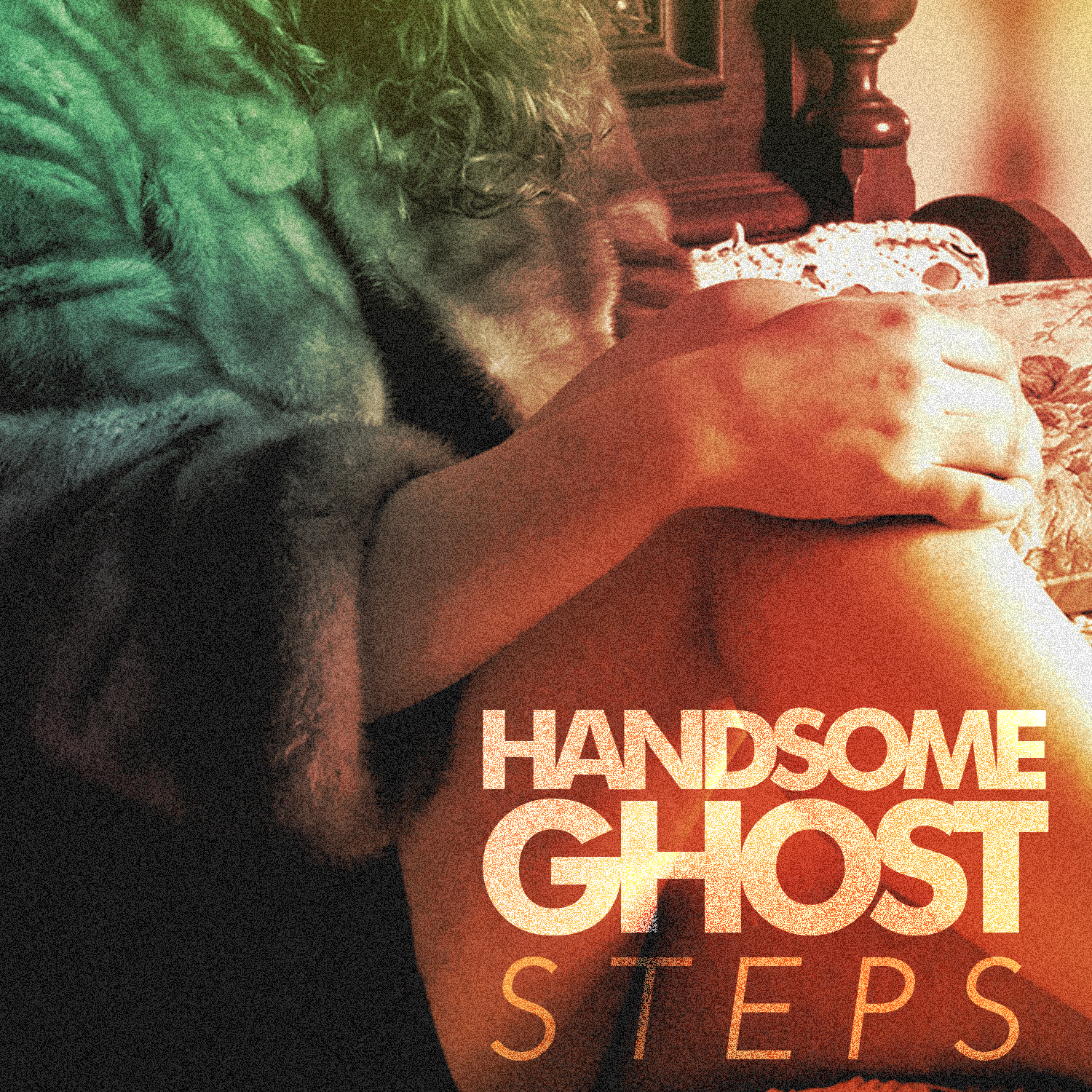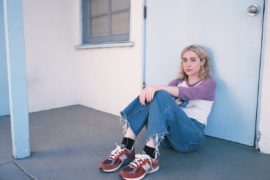Atwood Magazine’s writers discuss Glass Animals’ highly anticipated fourth studio album ‘I Love You So F***ing Much,’ unpacking its themes of love and the cosmos, diving deep into its spacey pop music and emotionally charged lyrics, and exploring how the band have fared at following up 2020’s ‘Dreamland’ and the meteoric success of “Heat Waves.”
Featured here are Atwood writers Ben Niesen, Christine Buckley, Claire Meyer, Emma Rayder, Kendall Graham, Lauren Turner, and Mitch Mosk!
— —
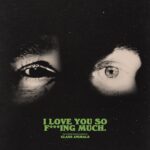
To start, what is your relationship with Glass Animals’ music?
Kendall: I’ve been a casual fan of Glass Animals since their first album, ZABA, came out in 2014 during my freshman year of college. They fit to a T the kind of groovy, rhythmic, genre-bending music I loved at the time (and still do!) I remember listening to “Toes” and “Black Mambo (Stripped)” religiously on many of my walks to class. ZABA soundtracked such a new, exciting time in my life and got me through a lot of the first-year anxieties and new experiences of being a college freshman. I liked quite a few songs on How To Be A Human Being, too, especially “Pork Soda,” “Youth” and “Poplar St.” I carried many of their songs from these first two albums with me throughout the years. But around the time Dreamland came out, I kind of fell off from them, save for “Heat Waves,” which one could not have gotten away from at the height of its popularity no matter how hard they tried. It was well-earned though; it’s still a banger of a song.
Ben: I’ve been a standard-issue fan of Glass Animals since the ZABA era, when the sounds of “Gooey,” “Hazey,” “Black Mambo” and “Toes” pervaded the halls of my fraternity as much as the waft of White Widow or Gorilla Glue. The album truly stuck itself to me in the summer of 2015, as it regularly soundtracked my breaks while working at the local movie theater. From there, ZABA became the bar against which all other things were measured. I reviewed Glass Animals’ follow-up for the college newspaper, stating that if ZABA is the riverboat cruise through the heart of darkness, then How To Be A Human Being was the exodus through the kingdom of Ozymandias. Equally powerful as an atmosphere, but with a lens trained on the exotica of human existence rather than gene-spliced animalia. From there I took a long hiatus from the band until Dreamland dropped. I was a fan of the sound, but much like the charts, it took a while for me to fully accept that album.
Mitch: Let’s just put it this way: Pineapples are (always) in my head. My love of Glass Animals starts in the fall of 2015, with songs like “Gooey” and “Pools” off ZABA, as well as “Psylla” – a lesser-known, but much beloved track off their self-titled 2012 EP, that regrettably never found its way onto a full-length album. My girlfriend at the time (now my wife) introduced me to this indescribably cool, psychedelic band from the UK who had this “je ne sais quoi” quality bout their songs. To dive headfirst into ZABA was (and still is) to immerse yourself in this intoxicating environment, the likes of which you’ve never really felt before.
It’s been one of the great joys of my music writing career that I’ve been able to reconnect with Dave Bayley every couple of years and dive deep into the art he and his best friends make, and I’ve continued to enjoy every iteration, and every era, of the Glass Animals saga. Songs off How to Be a Human Being, especially “Agnes,” helped me through my mother’s passing from cancer in 2017. When I saw Glass Animals at Radio City Music Hall – my first foray back into concerts after her death – I cried the most profound, the most powerful, meaningful, and cathartic tears I might ever cry in my life. Without ever knowing it, they helped facilitate that release, and I’ll be forever grateful. That entire album remains one of my all-time favorites; I truly don’t know many records like it!
Every Glass Animals record is a world unto itself; which one is my favorite honestly depends on which way the wind is blowing. The magic of this band is their ability to connect on a deep level, while creating some of the most provocative, colorful distinct, and catchy music I have personally ever heard; yes, sometimes Top 40 radio eats it up, but “Heat Waves” is by no means the best Glass Animals song ever written; in fact, the album it sits on is home to the dramatic, sonically and emotionally charged fever dream “It’s All So Incredibly Loud” and the achingly raw, brutal “Domestic Bliss,” both of which left me moved beyond words. Yet it’s the fact that Glass Animals can satisfy mainstream and alternative listeners alike that makes them such a special band, and that’s why I’m so excited that after four painfully long years, they’ve gifted us a new album that is, once again, a world unto itself.
Christine: Like so many millions of others, I had “Heat Waves” on a summer brain loop for a chunk of the 2020. It had a hypnotic, cyclic rhythm that resembled my – and many people’s – life at the time: the cycle of remote work, family care, same four walls, same late night revenge scrolling. I dabbled in a few of their other works, but obviously this was the big one.
Emma: I was introduced to Glass Animals debut album, ZABA, during my junior year of high school. “Gooey” was a heavyweight contender for most-played song on the playlist (aptly named “Driving”) that carried me through my 30 minute commute each day. Having grown up in a Springsteen household, Glass Animals’ funky sound was a new kind of drug – an escape from the walls at school and home that confined me. I moved on from the band during my college years, but fell back in love with “Heat Waves” (who didn’t?!) in 2020. I’ve been eager to hear what Glass Animals have fashioned from the past four years of chaos.
Claire: I guess my relationship with Glass Animals is newer compared to everyone else. I was first introduced to the band in 2020 when I was driving one of my college roommates and had Still Woozy playing, she said the song (I can’t remember which, probably “Vacation”?) reminded her of “Gooey” and played it for me. From there I was hooked and continued to explore their discography. Since at this point Dreamland had recently been released, it was nearly impossible to escape the “Heat Waves” (pun intended). Not long after, a different roommate became obsessed with Glass Animals too, always bumping “Heat Waves” or “Tokyo Drifting.” Those tracks quickly became the anthems of my third year of college. Now, everytime I listen to the band, I always think of them and our little apartment we had together.
Lauren: A friend of mine back in 2019 told me that they thought I’d love the song, “Gooey,” and played it for me. Sure enough, I got hooked and it became one of my favorite songs. I liked the funky beat and unique vibe Glass Animals had going on. This led to me wanting to know more about them and I deep dove into figuring out who they were. By the time Dreamland released, I was addicted. I counted down the days for that album and it has become one of my favorite albums to this day. Because of this, I went to see them play live at Lollapalooza in 2022 when the hype of “Heat Waves” was at its peak and it just solidified my love for them even more so.
What are your initial impressions and reactions to I Love You So F***ing Much?

Kendall: What I first noticed about this album is that it feels much “rock-ier” than any of their previous albums, which I like a lot. I’ve been enjoying the mix of tongue-in-cheek songs and ones that are brazenly, almost painfully, honest. I had the recurring feeling that this was some of the most honest storytelling Dave Bayley has done so far for Glass Animals. Looking at the tracklist, I wondered which, if any, of the songs might be trying to replicate the crazy appeal and success of “Heat Waves,” because why wouldn’t you at least try to do that? “White Roses,” to me, very strongly resembles “Heat Waves.” Like, you could sing the latter song over the former and it matches up eerily well. I thought it was a smart decision to try and re-capitalize on that bombastic sound, even if the result is a little derivative.
Ben: As with all new Glass Animals records, I can’t help but compare it to ZABA. Like sure, Dreamland may have “Heat Wave” and the most listens of all their records, but on first listen, there’s no way it can top ZABA. Same with I Love You So F***ing Much. Even moreso, actually, considering what I’m about to say about this record. But this is frequently the pattern until the music works its way around my skull for a while.
Christine: The album felt like an overproduced riff on “Heat Waves,” the biggest difference being Show Pony’s major key. It felt like the same three notes in every chorus, like one long song with a precious few intriguing moments splashed in. Maybe this is the sound everyone likes and wants, and maybe the producers pressured them into doubling down on their “Heat Waves” hand. But to me it really lacked creativity, and I was highly disappointed.
Emma: Unfortunately, I have to agree with Christine. The album feels derivative in both sound and theme. The band understandably sought to capitalize off of the success of Dreamland, but took it a tad too far. I found myself drifting off while listening to the album, unable to decipher when one song ended and another began. It’s by no means a bad album, but I wouldn’t go out of my way to listen to it in full again.
Mitch: I’m laughing as I type that I love this album an appropriate amount. Not so f***ing much, but enough nonetheless. Let me explain: The first time I listened to this I Love You So F***ing Much, I felt like I could point out tracks where I thought Glass Animals might be trying to duplicate, or simply capitalize, off the formula that brought them success with “Heat Waves.” I can almost hear their label saying “give us another ‘Heat Waves,'” and the band churning out “Show Pony” and “Creatures in Heaven” just to please the powers that be. These are both great songs – I’ve listened to and enjoyed them more times than I’ve listened to and enjoyed most music released this year – and yet, they’re nothing “new.” And when you’re talking about a band that has consistently blown your mind, that can be disappointing.
I do think I Love You So F***ing Much is Glass Animals at their most mainstream-friendly, meaning there’s less focus on the artistic experimentation that dominated their last two albums, and more effort put into getting these big, bombastic releases out of a 4/4 time signature with a traditional verse-chorus, verse-chorus songwriting format. The live show supporting this album is going to be sick, and I’m sure Bayley and the gang at least in part made this bigger and bolder record with a mind toward filling the stadiums its songs would be played in.
But for anyone who says Glass Animals aren’t on their A-game, I’d instantly put on “Wonderful Nothing” – a song that took me a few listens to really appreciate. How many pop songs can you name where the first minute of music ebbs, flows, and fades, completely going dark, only to come back with a fiery, churning, and utterly all-consuming synth line?
And if that’s not enough, I’d throw in “A Tear in Space (Airlock),” one of my new all-time favorite Glass Animals songs (for its sheer intensity and hypnotic groove) and “On the Run,” a dramatic back-half song that has, since I first heard it, proved the perfect pump-up jam. Unlike other Glass Animals albums, I don’t think I Love You So F***ing Much is best enjoyed at home or alone. I think this is an album to dance to; to pull out at parties, to drive to when you need that upper-kind of accompaniment to keep you alert on the road. It’s not their most novel songwriting, but it’s their most electric, and in my opinion, their most cohesive work since ZABA. Whereas Dreamland and HTBAHB really were collages, I Love You So F***ing Much feels like ten different angles of the same singular world, and I think that’s worthy of praise in its own right.
Claire: I definitely agree with the others that I Love You So F***ing Much has a lot of similarities to Dreamland, and especially to “Heat Waves.” But I still really enjoyed the record. I’m honestly such a sucker for a concept/themed album, so I really enjoyed trying to find and dissect all the space references. And on top of the spacey vibes, being able to piece together a timeline for the relationship that is central to the album was another fun little puzzle for me to do while I was listening. Even though it seems that Glass Animals has settled into their sound on this album, there was enough novelty in the lyrics for it to still seem fresh.
Lauren: I actually really liked I Love You So F***ing Much. I think it sounds like Glass Animals and the sound I have to come to know and love them for. Lately, I feel like in the industry so many artists feel the need to have albums that sound vastly different from one another. Everything they put out has to be its own distinct sound and sole project. Nothing can come close to it. One album might be country and then the next album is pure pop. Personally, I haven’t liked this new push in the industry. I admire when artists can stick to what they are known for but still provide new and individual projects. In this case, I feel like one could argue this sounds like a lot of Glass Animals’ previous work. But I think they have mastered the art of staying true to themselves and their sound while providing a new experience for their fans. In I Love You So F***ing Much, I was wowed by their artistry. How they told the story of a relationship from start to finish throughout the first to the last song in order was super impressive to me. Starting with that initial spark in “whatthehellishappening?” and moving through the hardships in “I Can’t Make You Fall in Love Again” to end up at the pondering of the future in “Lost in the Ocean,” was a journey. They captured almost every aspect and stage of a relationship that they could and told it in a way that was relatable yet unique. And to do it all through the metaphor of a space abduction was very interesting and captivating.
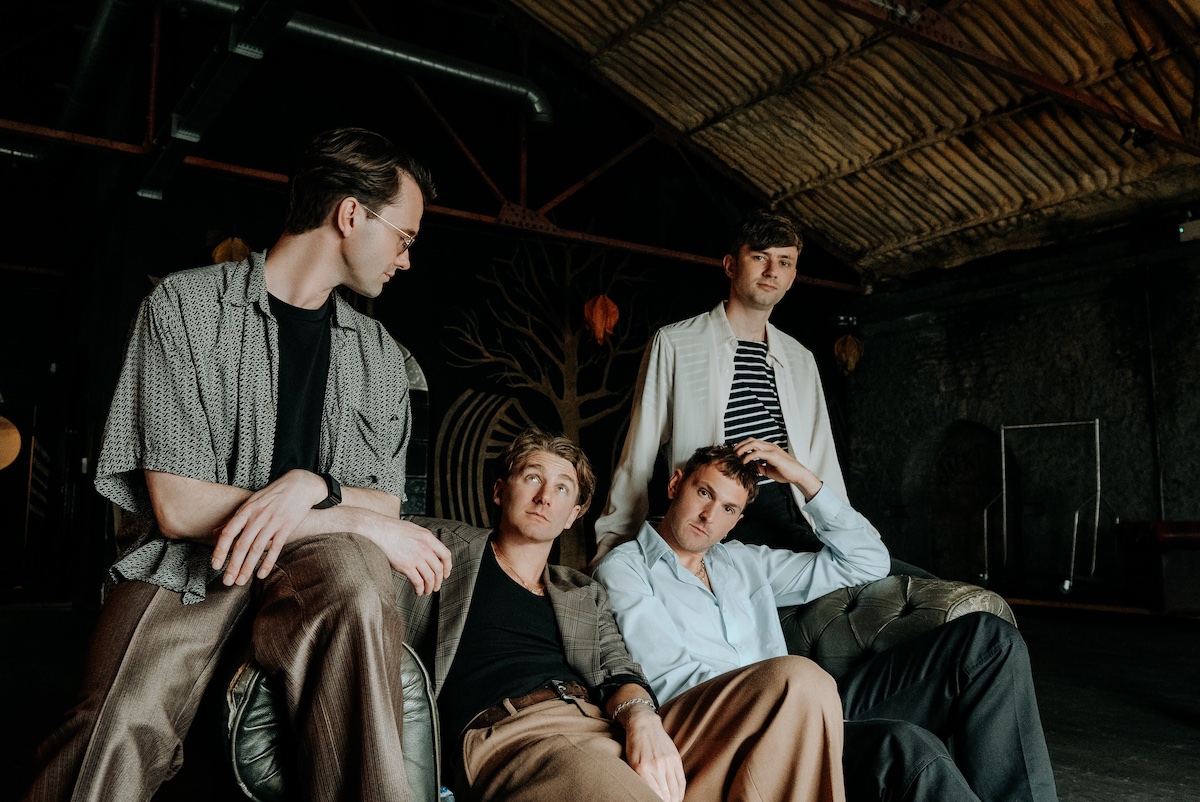
How does this album compare to previous records like Dreamland and How to Be a Human Being – what are the most striking similarities or differences?

Kendall: The most striking differences to me are, again, that it sounds more like a rock album than any of their previous records. I looked at their Wikipedia page recently, which describes them as an “indie rock” band, and I thought it was kind of hilarious because before ILYSFM, I wouldn’t have used that descriptor. But there’s musical continuity between Glass Animals’ albums, with distinct thematic differences. ZABA was dreamy jungle pop; HTBAHB took some of that electronic jungle pop and brought in some elements of hip-hop; Dreamland took hip-hop and ran with it (a little heavy-handedly, to me) with a bit more of that sylvan dream pop interspersed. ILYSFM launches all of these elements into the stratosphere. It’s like a synth-y space opera. It’s a little more outwardly, purposefully positive than previous albums. Dreamland is heavy nostalgia, ZABA is a strange dreamscape and HTBAHB is an anthology.
Mitch: I mentioned most of my feelings above, but they’re pretty in line with what Kendall just said. I do think it’s worth reiterating how cohesive I Love You So F***ing Much feels, and how its songs, while dramatically distinct from one another in terms of their sonic architectures, really do feel like they’re all from the same world. That can’t be said about Glass Animals’ last two albums, both of which were made to feel more like scrapbooks or anthologies – Dreamland is a deeper dive into Dave Bayley’s own (pseudo-)history and psyche, while How to Be a Human Being is a smorgasbord of totally disparate ideas that somehow fit together with perfect synchronicity. Detractors would argue that whatever “sameness” I’m talking about is not the best look, whereas I’d argue that Glass Animals have shown themselves to be in their element and in their “pop” prime. I do think this album has been made knowing the scrutiny it’s going to receive in the wake of Dreamland‘s blockbuster success, and while the expectations (and the pressure) were sky-high, I think the band have lived up to their potential in creating yet another record that feels at once heavy and light, nuanced and emotive, intentional, intimate, and grandiose. So, those are my thoughts. Did I answer the question? Who knows.
Ben: To accurately describe what listening to this record is like, play Dreamland front to back then wait four years. Once you’ve waited four years, put on I Love You So F***ing Much. You might have moved across whole states, but Wavey Davey and company barely sound like they have moved an inch. I agree with Kendall that there is a much more pronounced indie rock edge to the album, but it sounds like only a slight iteration on “Heat Waves,” and “Tokyo Driftin’.” It still retains a large essence of electric rhythm and beats (though not quite the same New Orleans bounce) that defined Dreamland’s listening experience. It’s eerily similar to how Pink Floyd’s The Final Cut feels like both an addendum to The Wall as well as an early audition for the Roger Waters solo experience. I wonder if this album would have worked better as a Dave Bayley solo debut, rather than a Glass Animals product.
Christine: It definitely smelled like Dreamland, but if Ryan Tedder was at the helm and threw in a few random Pixies influences. This group have tried different stuff in each album, but this time they seemed to, I don’t know, implode on themselves. On the other hand, the lyrics were interesting – more personal, which was at moments poignant and at moments too angsty.
Emma: I Love You So F***ing Much feels like a continuation of Dreamland, which makes sense. If you achieve the sort of monumental success that Glass Animals did with their last album, why not continue with that sound? Heavily accented beats and synth overlays punctuate both albums, but, as others pointed out, the lyrics are more influenced by indie rock. Either way, the band has come a long way from the jungle beats found on ZABA.
Claire: As I mentioned earlier, my initial reaction to this record was that it sounded very similar to Dreamland. I think that was mostly due to the hip-hop-influenced beats. I’ve always loved how Glass Animals is able to sort of reinvent their sound with each record, and yet each album is clearly related to the last. When comparing I Love You So F***ing Much to ZABA there is a pretty stark contrast in sound and tone, but comparing each album to the one before and after it, the changes are minimal. While as a whole this record bears a lot of similarities to Dreamland, there are still nuanced touches in the writing style that differentiate it from earlier releases. I think this record also marks a more raw and honest approach to songwriting.
Lauren: I think it sounds pretty similar to other work of theirs. But, I like that. Like I said above, I admire when artists can stay true to their sound while still providing a rare and new experience for their fans. Glass Animals, in my opinion, excels at this. In comparison to other albums, Glass Animals still sticks to their synthy tunes, witty quick lyrics and detailed storylines.
Glass Animals teased I Love You So F***ing Much with “Creatures in Heaven” and “A Tear in Space (Airlock).” Are these singles faithful representations of the album?

Kendall: For the most part, I think they are. Dave Bayley likened this album to a journey through space, and that motif appears strongly throughout at least half of the album, particularly on these singles, and also on “Lost in the Ocean” and “On The Run.” There’s really raw vulnerability, honesty and emotional exposure in “Creatures in Heaven,” which, to me, tracks thematically. It’s kind of diaristic which I think is an interesting choice; I feel like he didn’t try to cloak his feelings or put distance between them and him. The quirky production choices of “A Tear in Space (Airlock)” are representative of how much of the rest of the album sounds, and to me it solidifies the space-related themes that pop up, so I would say these singles are faithful representations of ILYSFM.
Ben: They are two of the stronger songs on the album, despite my apprehension writ-large regarding the whole project. They form the core of the album’s five song run wherein it sounds the strongest. I really do love the imagery that Bayley uses up and down the track; the lingering existence within a moment long past; the forevermore overdue admittance of emotions. This is a song that, in a vacuum, totally nails the theme of the album. The bigger issue is that, outside that vacuum, “Creatures in Heaven” (while starting that core run through to “How I Learned To Love The Bomb”) roots the record in place as part of this post-Dreamland pervasiveness. Think of it this way: What does “Creatures in Heaven” explore that “Heat Waves” hadn’t already mapped?
Mitch: Ben, I absolutely love how you put it. They’re two of the poppiest songs on what is, to my eyes and ears, Glass Animals’ most pop-forward album. “Creatures in Heaven” is, in my opinion, a well-executed song with an instantly-recognizable sonic template that you can spot from a mile away. I know those 3 minutes and 41 seconds by heart, not because I’ve studied this song intensely (I promise, that’s not how I go about my music experience), but because it’s so easily and instantly digestible. Meanwhile, “A Tear in Space (Airlock)” is, as I’ve said earlier, one of my new all-time favorite Glass Animals tunes, primarily because of its spectacular, fever dream of a chorus. It’s also a bit left-of-center, with that higher-than-falsetto singing a definite risk on Bayley’s part – one that, in my opinion, pays off in spades by the time he and his mates hit the first “water…” of the chorus.
No two songs could ever hope to capture what any Glass Animals record is all about, and we definitely lose the magic of “Wonderful Nothing” and the raw electricity and heat of “Show Pony”… but overall, they’re a great introduction to a great record. Ben’s right, though; as singles, “Creatures in Heaven” and “A Tear in Space (Airlock)” open audiences up to the new album’s themes, but they’re not boundary pushing – this is no “Pork Soda” or “Season 2 Episode 3,” but again, as I’ve said above, provocation and experimentation are not necessarily this record’s pillars, and maybe that’s okay? I still find myself going back to these songs; they haven’t exhausted their appeal, and I’ve had them on a pretty consistent loop since April (I got the album early, sorry friends).
Christine: “A Tear In Space (Airlock)” was one of the only times when Dave Bayley’s talent for vocals came through really well, and I agree with that choice. But I’d have gone with Wonderful Nothing – an upbeat one with a good groove, a simple but solid hip hop beat with some acerbic lyrics about toxic love that make you feel some authenticity, like Bayley just said “f*** it, gonna say this straight.”
Emma: Yes. Both “Creatures in Heaven” and “A Tear in Space (Airlock)” play heavily into the album’s key themes of space and dysfunctional romantic relationships that are beyond repair. Echoes of nostalgia (or regret) for a perfect moment in time (“Three in the morning, safe inside / Bury me here in your laundry pile, at / Three in the morning, be in the moment”) first heard in “Creatures in Heaven” resound in “whatthehellishappening” (“I’m so happy, this is just where I wanna be”) and “I Can’t Make You Fall in Love Again” (“Sunday afternoons go Adamson’s lagoon / Your blurry old tattoos / My faded jelly shoes, a box of apple juice”). Motifs of control in “A Tear in Space (Airlock)” are found in “Show Pony” (“All those times he did what he pleased / Boy, those scars must really run deep”) and, of course, “How I Learned to Love The Bomb” (You switch it off, you switch it on / I’m sat there, holding on for the bomb”).
Claire: I think both singles represent the album well. They both lean heavily into the space themes of the album, in title and lyrics, as well as showcasing the dichotomy of love explored throughout. “Creatures in Heaven” feels deeply intimate, it perfectly captures the feeling of longing and heartbreak we all experience when we look back at past relationships. While “A Tear in Space (Airlock)” captures the more agonizing side of love, it feels desperate and exhausting. They are like two different sides of the same coin.
Lauren: I believe these two singles were faithful representations of the album. I agree with Kendall that the space theme is prominent, especially within these two songs. But I also think these two singles really are some of the most pivotal and deeply emoted songs on this album in regard to the relationship being sung about. I’d argue “Creatures in Heaven” holds the most emotion and is the start of truly feeling in love and realizing you are in that deep rooted love. Which, is the whole point of I Love You So F***ing Much.
I Love You So F***ing Much is an album born out of an existential crisis following the band’s global stardom, and each song, according to Dave Bayley, is dedicated to a different side of love. Where do you hear or feel these descriptions come alive in the music?

Kendall: I hear the existential crisis on “whatthehellishappening?” and “Lost in the Ocean” the most. With the former song, it feels more or less about surrendering to the pull and will of the universe, giving up a certain amount of control to take what comes your way, trying not to fight too hard against it. Carefree abandonment. You don’t even really need to hear “Lost in the Ocean” because you can get an idea of the vivid imagery the song invokes from the title alone. Being an infinitesimally small presence in the incomprehensible vastness of the ocean would give any sane person at least a mild existential crisis. The shades of love that stand out the most to me are “How I Learned To Love The Bomb” and “I Can’t Make You Fall in Love Again.” The latter is pretty self-explanatory; I’ve grown to love the former song a whole lot because I like the analogizing of love into something violent, a strained, fraught relationship laid out into a minefield that you’re both scared of and highly enticed to navigate.
Ben: I’m not arguing that Bayley fails to find niches within this album to expand upon the whims and wistful nature of love. But as I was led to understand, the album was to be 10 intimate portraits of love set against a cosmic backdrop. It seems like that aim is rarely found, and often sidelined by the goals of each song. The only track that really emphasizes the astrophysical scale is “A Tear In Space (Airlock),” the only track that hones in on the spacetime continuum with the fixation of Kurt Vonnegut is “Creatures in Heaven.” Otherwise, each record is content to reconfigure itself for toxic sarcasm and encounters of an extreme nature. It’s one of the few stretches the album actually undertakes, but it means the central theme feels a little off-balance.
Christine: The most interesting themes to me here are the ones that are biting, full of bitterness and bile – so for me it’s the ugly side of love that’s more prominent and most interesting. Stardom is a wild thing and I can’t pretend to know how it can really mess with someone, even make you question whether love is real.
Emma: I agree with Christine’s assessment that the album focuses mostly on the ugly side of love. From sick and destructive obsession in “A Tear in Space” to psychological warfare in “How I Learned to Love The Bomb,” Bailey hints that creatures in heaven can get dirty too. I Love You So F***ing Much feels a bit like the existential crisis that happens after a breakup from a codependent relationship. I can imagine that could translate to trying to pull away from one song’s mega success and start over new.
Mitch: It’s funny… I’m such a lyrical nerd in that I’m always trying to dissect what a song means. I learned early on that Glass Animals lyrics aren’t, or at least weren’t previously made for such an endeavor; case in point, I’m still trying to figure out what “peanut butter vibes” actually are, and I’m pretty sure I’ll go to my grave without an answer; Bayley was purposefully avoidant the one time I asked him. As the years have progressed, Glass Animals’ lyrics have become more accessible at times when Bayley wanted them to be. Dreamland, a deep dive into his own stories, had its fair share of cryptic allegories and allusions, but I more or less “got” it.
I Love You So F***ing Much is a giant leap forward in terms of accessible songwriting from a lyricist who, once-upon-a-time, really didn’t care if his words made sense to anyone that wasn’t himself. Thus from the moment “Show Pony” begins, we can follow along to these more or less relatable stories of love and pain, of sweetness and suffering, as Glass Animals paint these vast worlds of sound around the most intimate experience imaginable. Others will do far better than I can at pinpointing the moments that stand out the most, but for me, it’s the candid storytelling, the self-awareness, and the sheer vulnerability in tracks like “Show Pony,” “A Tear in Space (Airlock),” and “How I Learned to Love the Bomb” that hits hardest.
Claire: As far as the existential crisis, I agree with the tracks Kendall mentioned: “whatthehellishappening” and “Lost in the Ocean.” I also think “On the Run” conveys the all-consuming need to top their Dreamland success. The idea of faking your own death because you feel like you can’t meet the expectations everyone (yourself and others) has set for you can be applied to a relationship, but also to where the band is at this point in their career. As for love, I think “Creatures in Heaven” takes a very straightforward approach to love, showcasing the best moments in a relationship. Other moments that stand out are “How I Learned to Love the Bomb,” exploring the uncertainty of a toxic relationship, and “I Can’t Make You Fall in Love Again” also dives into the lack of control we can feel during a relationship and how love can grow to feel one-sided.
Lauren: I really see this coming to life as you listen to the album, in order, from start to finish. Like I’ve mentioned above, this to me, feels like I am being told the story of someone’s relationship. I see it coming to life the most in “Creatures in Heaven.” I think in this single we get such strong and raw emotions of when you finally accept you are in love. You realize it is scary, it can hurt but it is also extremely special. It is a pair’s own world. Only the two of you know what is truly happening and all that the relationship holds. To me, this song hints at the question, “Did it mean as much to you as it did to me?” Which is a question we have all asked ourselves at one point. The song’s chorus holds some of the most vulnerable lines on the entire album, “It tears through my head, does it haunt you too?/ Diamonds in the dark in your old bedroom/ You held me like my mother made me just for you/ You held me so close that I broke in two/ It tears through my head, does it haunt you too?/ Never really said that I loved you too/ Lucky, lucky you ‘cause I’m fortune’s fool/ Such small words but they hit so huge/ I don’t think I realize just how much I miss you sometimes/ We were young and so in love/ We were just creatures in Heaven.” It captures love at its core.
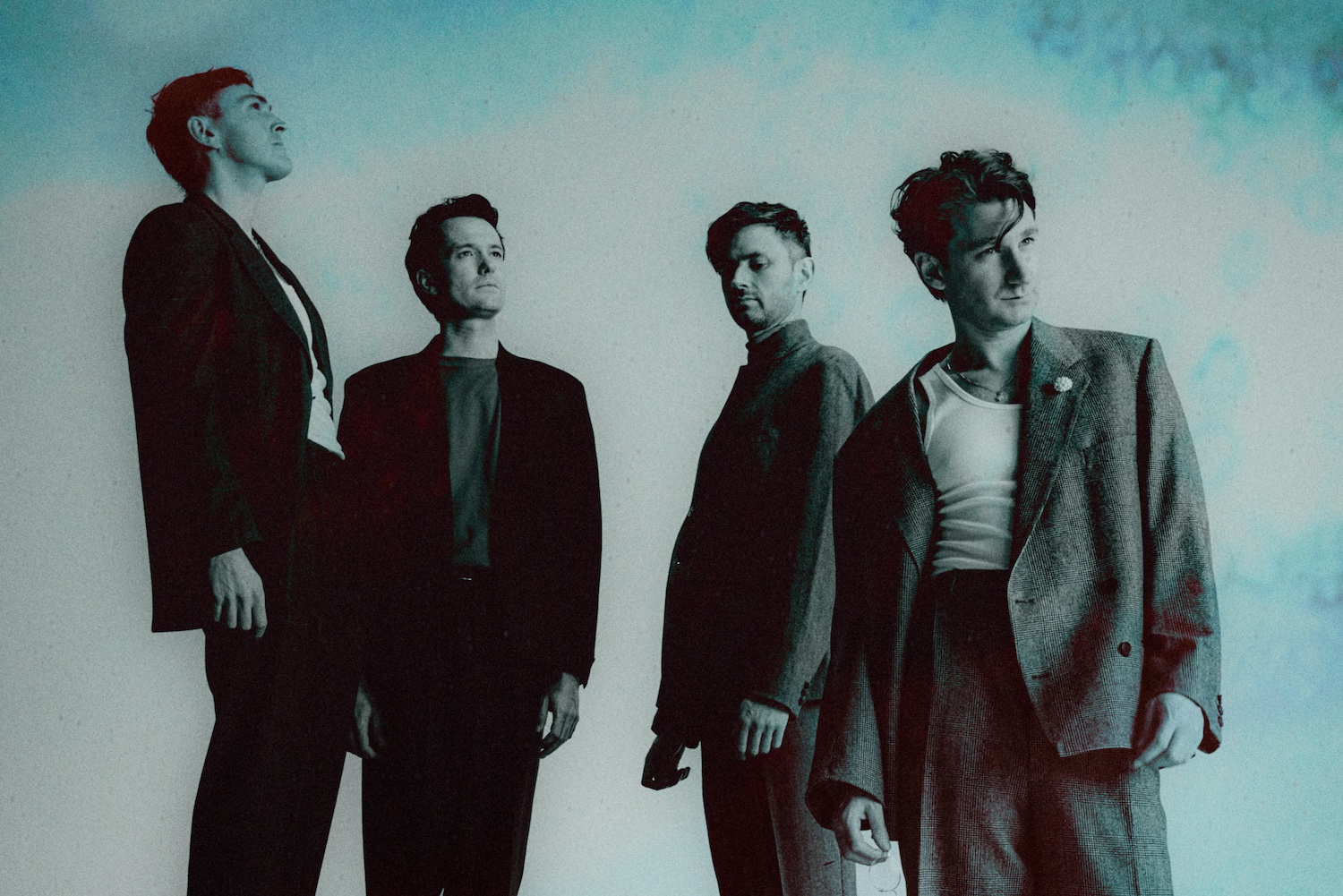
Which song(s) stand out for you on the album, and why?

Kendall: “How I Learned To Love The Bomb” is a huge stand-out on this album to me. First off, I love the reference in the title to Dr. Strangelove (full movie title: “Dr. Strangelove or: How I Learned To Stop Worrying and Love The Bomb”), which is a great war satire film from the 60s from which a good friend and I have one of our favorite in-jokes. The song doesn’t sound like any other Glass Animals song to me. There’s a stomping drive to it that’s almost roots-rock and I cannot get enough of it. I’m kind of hypnotized by it. You’ve got Dave’s characteristically-verbose, fast and rhythmic verses, which sometimes irk me because it can feel like he’s trying too hard to fill in space that may not need to be filled, but here I think that works great. I think this would be so enjoyable to see live if they wind up putting it on their setlist. “Lost in the Ocean” also stands out to me because of the strong imagery and the wistfulness of the song. I also live on an island, so I always tend to be a little bit biased about ocean- and water-related songs and references. I like the idea Dave Bayley gave of choosing this song as the album closer because, if we treat the album like a journey through space, “the spaceship has [now] literally landed in the ocean,” he told Apple Music. That image is so interesting to me.
Ben: “Wonderful Nothing” cut the crap and gave people the follow-up to “Tokyo Driftin’” that they probably didn’t know they wanted. I quite enjoy the moment it turns from softboy soul to a grittier, meaner rhythm and melody of hip-hop. It’s not quite a key change, but it certainly is a tone shift. I also am going to jump on the “How I Learned to Love The Bomb” discussion by invoking the multiverse; this record feels like it could have ended the album in a different timeline. Together, the pair show off that pure instinct of burning a bridge that might have been better kept.
Christine: We all seem to agree on “How I Learned To Love The Bomb” – that’s got the most poignant love imagery for me, because love is never simple. I can’t say much more than what’s already been said but yeah, I love the swing, the cutting lyrics, the “f* it and f* you” attitude. Ben’s multiverse hypothesis is really intriguing – gonna listen to it again with this idea!
Emma: “Show Pony” and “How I Learned to Love The Bomb” are my two favorite tracks, largely due to their cleverness. I admire how Bailey twists the idea of love bombing to create a World War between two individuals in the latter track. When listening to “Show Pony,” I can’t help but think of the “trad wife” craze currently consuming pop culture and the Ballerina Farm article in The Times that shed light on the massive weight these women carry each day. With the album’s first track, Bailey shows what happens when the weight becomes too much and people reach their breaking point.
Claire: Maybe it’s not a surprise at this point, but “How I Learned to Love the Bomb” is by far my favorite track off the album. It immediately stood out when I looked over the tracklist because of its obvious reference to the Kubrick film Dr. Strangelove or: How I Learned to Stop Worrying and Love the Bomb (1964). The erratic behavior Dave Bayley sings about on the track reminds me of the erratic behavior of the characters in the movie. The instrumentation of “How I Learned to Love the Bomb” really slows things down, but not in a ballady way. The beat felt very fresh and not like anything in Glass Animals’ discography.
Lauren: I loved how the album opened with “Show Pony.” It’s almost like we are getting ready for a storytime and the scene for the album is being set up. “Wonderful Nothing” also sticks out to me a lot on this album. I think the anger and quick lines make for this intense yet fun and catchy tune. I like the juxtaposition at the end of this song specifically. After all the anger protrudes, he still ends with the line, “I’m trying to stop, but I still love you.” Again, tying everything back to the main theme and message of being head over heels in love with someone. I also have a soft spot for “I Can’t Make You Fall in Love Again” and “Lost in the Ocean.” They both are calmer songs on the album that focus and highlight their storylines in such beautiful ways. Because of their slower take, it gives listeners the opportunity to really sink into the words and feel its hurt and emotion, which is a powerful thing to be able to do as an artist.
Mitch: I pretty agree with everything that’s been said up to this point; “Show Pony” and “How I Learned to Love the Bomb” are two of this album’s all-stars, and for good reason. That sinister, seductive synth on “Wonderful Nothing” hits like nothing else I’ve ever heard, and I love that Glass Animals had the guts to do what they did with that track. It’s bold, and it’s perfectly executed. My favorite is, was, and remains “A Tear in Space (Airlock)” not for any scientific reason, but for how cathartic it feels to sing the chorus: “Water, running down my face. Water, running different ways. Water, like a billion waves. Water, just a tear in space.” It’s simple, catchy, and absolutely immersive. When you talk about being drawn in by an artist, for me, that song is the tractor beam at full force.
Do you have any favorite lyrics so far? Which lines stand out?

Kendall: Gotta bring it back to “How I Learned to Love The Bomb” (Did this just quickly become one of my favorite songs ever?) “Split like a thunderstruck / tree trunk or maybe the / splits in your knuckles / the split lip you lick too much.” First of all, it’s got a fun cadence to sing along to. It’s kind of a tongue-twister. And I love the rapid-fire imagery it evokes, there’s a muted violence to it that I find really intriguing. And I like the chorus of “White Roses,” too: “White roses in the red dirt / You said it’s so beautiful it hurts / And I knew it and my heart burst / You’re so much more than I deserve, but.” Again, I found a kind of muted violence in this imagery, and those contrasting colors really stand out to me. Can you really find white roses in red dirt? Red dirt reminds me of a desert environment. But I have to assume Bayley is talking about regular roses, and desert roses don’t look like that. But maybe he is talking about white desert roses. I’m as moved by the imagery as I am confused. It’s great.
Ben: All of this negativity, bile and bitterness on the record means that the lyrics that stand out are actually the tonics to the dominant energy that authors much of the confrontational lyrics. For that reason, I find the admittance “I can’t make you fall in love again” to be perhaps the most poignant, yet direct line of the record. It spends so much time talking from the ego of love and hate, that the line feels like shattering realization that the ego will probably not acquire what it desires.
Christine: The lyrics “when you get home, who will I get?” and “thought you brought buttercups, whoa that’s a Tommy gun,” are two ways to say the same thing – someone (or something – fame?) that you need but are sort of scared of because you can never guess what mood they’ll be in. It puts the speaker in a permanent state of attention, of monitoring what their environment will be like and constantly adjusting based on another person (or thing). I can deeply sympathize with the anxiety this produces and how it can eat away at your energy and your soul.
Emma: At the end of the first verse in “Show Pony,” Bailey sings, “He always fell asleep just before the movie finished.” I love how this points out the subtle ways in which our loved ones hurt us. Falling asleep at the end of a movie doesn’t feel like a big deal, until it’s happening every night and you’re no longer able to talk about your silly theories and movie star crushes over coffee the next morning. It reminds me of a scene in When Harry Met Sally, when Sally reminisces on the big plans and the “what ifs” she made in a failed relationship and realizes, “the thing is, we never did fly to Rome on a moment’s notice.”
Claire: This line is less serious than what everyone else has said so far, but hearing “thanks for all the fish” on “On the Run” brings a smile to my face every time I hear it. A reference to The Hitchhiker’s Guide to the Galaxy, it’s just a little line that keeps the song atmospheric and (at least for me) provides the imagery of every dolphin on Earth bailing and flying off to space, which is the sentiment of the song as well. Now on the serious side, there are several lines from “Tear in Space (Airlock)” that evoke such strong imagery. In particular when he says, “Stretch me like leather rope / Make me invisible / Shape me into your form” and “Hostage, so in love / It’s an airless black-chasm / You turn the airlock on.” Those lines just really hone in on the message of the song, focusing on the one-sidedness of the relationship.
Lauren: I love the line in “Show Pony” that says, “But he loved you/ And he loved you in a t-shirt, mm/ All the memories inside your curves/ Now you’re coming back to show us that girl/ So roll the credits, ‘cause the sequel’s gonna hurt, mm.” Again, it just sets up the album so gorgeously. Within this line alone, I knew we were about to get the story of a kick you on your ass type of love. “He loved you in a t-shirt,” to me means, he loved you for you. You didn’t have to be all done up or over the top. Just you, casual, was enough. And to follow it up with, “Now you’re coming back to show us that girl/ So roll the credits, ‘cause the sequel’s gonna hurt, mm,” you know it’s about to be a heartbreaking story. And when I first heard it, I immediately wanted to know what happened and why it happened.
Another line that sticks out to me is from “Wonderful Nothing.” It says, “I come back in with a one-two/ Sucker punch in the gut, here’s a tissue/ Truth hurts when it points right at you/ Sit down now for some ground rules, thank you/ Don’t talk, that’s it, just one/ Do you think you can handle that much?/ I’ve just come back to life/ I’m here, I’m your little ray of sunshine.” I just truly love the sass in these couple of lines.
Mitch: Lauren, for an earlier question you cited the lyrics to “Creatures in Heaven,” and how that song is an example of Glass Animals capturing love’s core form. I thought I would find myself talking about one of the non-single “deep cuts” here like (“White Roses” has some extremely intimate, confessional moments, and the record’s finale, “Lost in the Ocean,” stings every time I hear it), but no. The first line I’m citing is from that scene-setting lead single: “What do you think about when you think about love? I’m dumbstruck when you’re tender, but it’s three in the morning, be in the moment, here in the moment, free in the moment.” First, I love a good rhetorical question; second, I love repetition; and third, this song says so much, while barely saying anything at all. It’s provocative and personal, powerful but not overbearing; you have to come to your own conclusions, read between the lines, and really listen to what Bayley’s saying just to begin to understand what’s going on here. I appreciate when few words can have a truly massive effect on me and my brain, and the moment I heard “Creatures in Heaven,” for better or worse, my mind was blown. Such is the power of i love you, I suppose.
It tears through my head, does it haunt you too?
Diamonds in the dark in your old bedroom
You held me like my mother made me just for you
You held me so close that I brokе in two
It tears through my head, does it haunt you too?
Nеver really said that I loved you too
Lucky, lucky you ’cause I’m fortune’s fool
Such small words but they hit so huge
I don’t think I realize
Just how much I miss you sometimes
We were young and so in love
We were just creatures in heaven
I don’t think I realize
Just how much I miss you sometimes
For a moment we were just
We were just creatures in heaven

Where do you feel I Love You So F***ing Much sits in the pantheon of Glass Animals’ discography?

Kendall: Overall, I would put it second behind How To Be a Human Being, which I think is overall their best and has the majority of my favorite songs by them (although the Stripped version of “Black Mambo” is one of my favorite songs of the 2010s!) I think it has a more solid premise than ZABA, which felt more like a collection of sometimes disparate ideas rather than something that had any kind of throughline. I think it has better music than Dreamland, which to be honest, I didn’t really enjoy that much, although I appreciate the inspiration behind the album, which sprouted from both childhood nostalgia and a harrowing, nearly-fatal accident involving their drummer, Joe Seaward. Now that ILYSFM has been on heavy rotation for me the past few weeks, I think placing it second out of four feels fair. Obviously this is subjective to me and others may feel differently. If we’re talking thematically, though, I think it stands as an equal to HTBAHB. Both loose ideas of a journey through space and a sort of anthology of individual stories painting a broader picture of humanity are equally interesting to me.
Ben: Easy fourth. But the fourth best Glass Animals album is still a better product than most albums. I’m sure my feelings on the record will only increase – the central five songs of this record are worth listening to again. Overall, the album will still have to take a backseat to ZABA, How To Be a Human Being and Dreamland. But there’s at least one side’s worth of good music to write home about. It just doesn’t help that the rest of the album is a yawn.
Christine: One of my heroes (and one of the nicest and most genuine dudes on the planet), former Catfish and the Bottlemen guitarist Johnny Bond, once said about music: “You can find something redeeming in everything.” When people put work and emotion into music, it is always art, and it is sure as hell millions of miles better than I could ever do. So even though this album isn’t for me, and may potentially divide Glass Animals casual and rabid fans, there are some redeeming moments that I’ll continue to appreciate.
Emma: Dreamland is a tough act to follow. If the band’s third album was never made, I may have placed I Love You So F***ing Much higher on my list, but it feels too similar. Teenage nostalgia places ZABA at the top of my list, with Dreamland and How To Be A Human Being following close behind. I blame my expectations in part for my ranking of I Love You So F***ing Much. I may have to give the album another listen in a few months and see if my opinion changes.
Claire: After re-listening to their discography, I would put I Love You So F***ing Much third in my rankings, after ZABA and How to Be a Human Being (respectively). Dreamland just wasn’t really for me, so I found the moments on this record where the sound strayed to newer boundaries to be particularly refreshing. I liked how strong the throughline of the themes were in this record. I think it was a really smart and interesting idea to use the vast vacuum of space as the backdrop to really explore love and relationships (in the sense of romance and fame). On their own, each theme might not hit as hard, but together, they really play into each other, accentuating the isolation and desperation that both bring about.
Lauren: Something I have always admired about Glass Animals is their artistry. Within I Love You So F***ing Much, I think they have hit it on the head again. I agree with the other writers that it may cause some controversy from what fans are expecting. But overall, I think Glass Animals did what they do best – put out a piece of work that can be danced to, cried to, or laughed at. It lets you feel all the feelings through groovy melodies and detailed lyricism.
Mitch: I love how you’ve put it, Lauren – and I agree wholeheartedly.
To their credit, Glass Animals supersized their “audience” and their “fan base” in 2020-2021. Those of us who have been here since 2012 or 2015 are now like old torchbearers for a largely bygone era, and we can either shift with the times and recognize the band’s continued display of talent, or be crotchety and complain to folks who, quite frankly, don’t want to hear it! Yes, I do think this is Glass Animals at their most “mainstream,” and I think they’ve made an album that does its best to satisfy the over 25 million people currently listening to the band (numbers pulled from Spotify). To clarify, I don’t think they’re pandering to anyone, and this is not a Dreamland Pt. II, but it’s also not incredibly groundbreaking, sonically or lyrically, as past Glass Animals records have felt.
That being said, Dave Bayley and his bandmates Joe Seaward, Drew Macfarlane, and Edmund Irwin-Singer have also stuck to their guns in making a record that feels true to who this band is and has always been. Not for a moment does even a second of this record feel manufactured or inauthentic; I Love You So F***ing Much caters to a massive, global mainstream audience without sacrificing style or substance. It’s a ten songs about love and the cosmos, sung from the perspective of four best friends who have seen their worlds turned completely upside down over the past four years.
Being a Glass Animals fan used to feel like being in a cult only you knew about; it’s been exciting to welcome so many new members into what is no longer a secret society by any means, and it feels good to know that the band are meeting their moment with music that will undoubtedly fill the stadiums they are set to play in this fall. I will never forget seeing Glass Animals bring the house down at a packed House of Yes in Brooklyn back in 2016. They will likely never again play to crowds of under 500 people, and as a result, their music is probably going to keep getting bigger, not smaller. That’s okay, because Dave Bayley’s creativity – he is, after all, the driving lyrical, melodic, and production force behind the scenes – clearly knows no limits, nor is it faltering in the slightest. Like so many Glass Animals fans, I’m in it for the long haul, and I can find plenty of things to love about I Love You So F***ing Much while simultaneously acknowledging that this is not my favorite Glass Animals record; for me, stepping into any of the worlds they make has always been a special, unparalleled experience, and the cosmic landscape of I Love You So F***ing Much is as exhilarating as it is all-consuming.
Put another way, if I can get last-minute tickets to the Madison Square Garden show, I’m 100% there. The thrill of hearing “Wonderful Nothing” live? Forget about it. To summarize my incoherent and jumbled thoughts (I’m clearly still wrestling with how I really feel about this record), I Love You So F***ing Much feels very much like one for the fans – a world unto itself, a record born in the shadow of meteoric success, and an album that lives up to the hype without closing any doors for future endeavors. It’s home to some of the best songs Glass Animals have ever made, and for that, I’ll forever love it.
— —
:: stream/purchase I Love You So F***ing Much here ::
:: connect with Glass Animals here ::
“A Tear in Space (Airlock)” – Glass Animals
— — — —

Connect to Glass Animals on
Facebook, Twitter, TikTok, Instagram
Discover new music on Atwood Magazine
© courtesy of the band
I Love You So F***ing Much
an album by Glass Animals

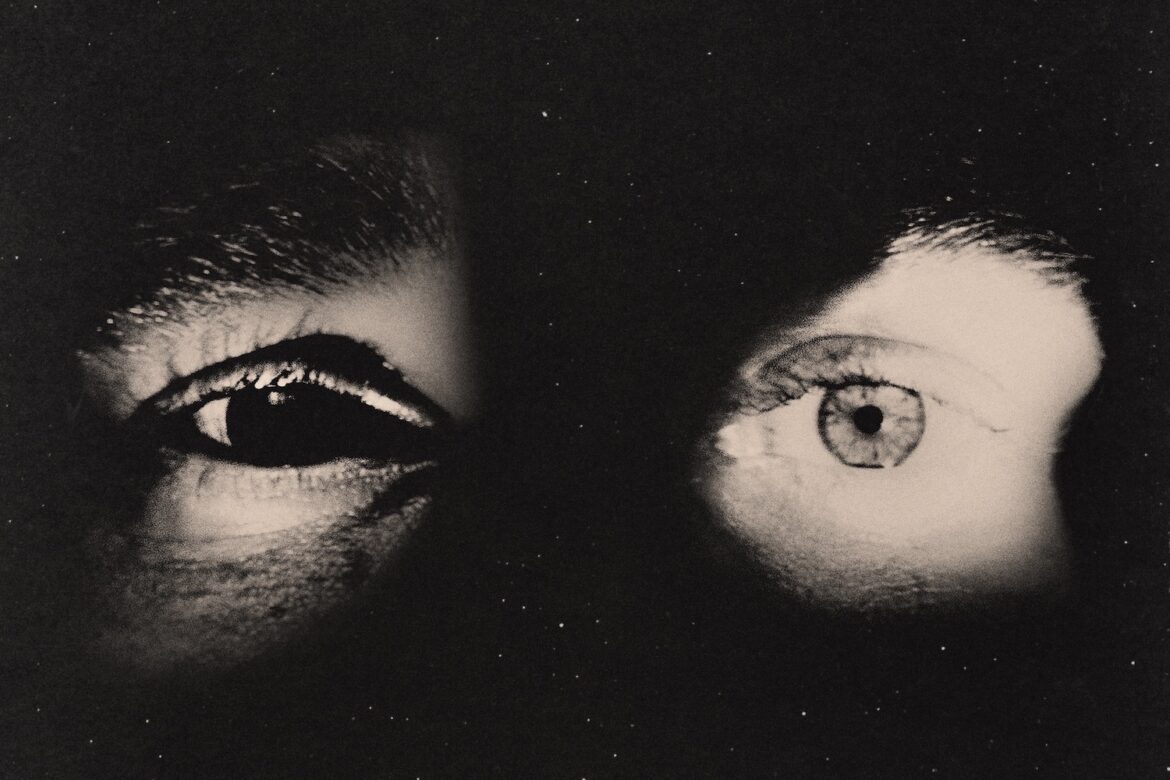
 © courtesy of the band
© courtesy of the band
